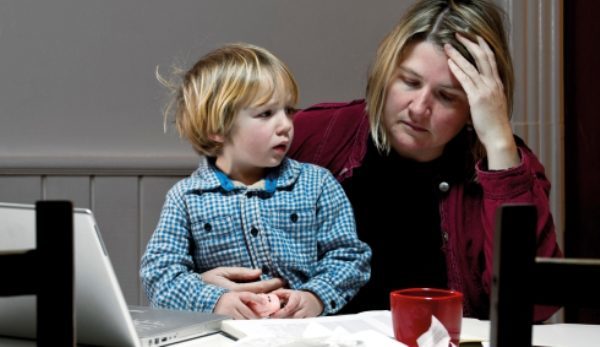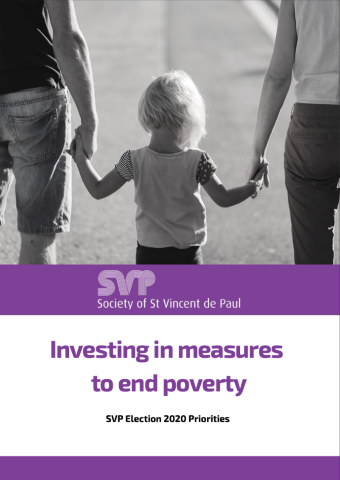
The Next Programme for Government Must Tackle Poverty
The next Programme for Government will be the most significant in modern history, and the choices that are made in the coming weeks, months and years need to be guided by the values that we have seen come to the fore during this crisis – compassion, solidarity and a concern for our most vulnerable citizens.
 Although Ireland has begun to make progress on poverty reduction, we entered this crisis with over 700,000 people across the country already living below the poverty line, including 230,000 children.
Although Ireland has begun to make progress on poverty reduction, we entered this crisis with over 700,000 people across the country already living below the poverty line, including 230,000 children.
Last year, over 70% of people living in poverty couldn’t afford an unexpected expense and 40% were going without basics like adequate heating and food. These households are being impacted by additional costs as a result of Covid-19 restrictions, with higher bills from being at home more and less savings to help keep them afloat. For those still carrying the scars of the last recession, another economic shock will harm them further, unless safeguards are put in place.
The situation has also brought into focus the crucial contribution many people in low-paid jobs make to our society. Food, retail, delivery, health and social care workers are being called on to deliver critical frontline services for our country. Ireland would not be able to weather this storm without these vital workers, so we must ensure all have decent pay and conditions after the crisis has ended.
The Framework Document published yesterday by Fine Gael and Fianna Fáil includes a number of welcome commitments such as delivering a living wage for workers, a reiteration of the importance of implementing Slaintecare and a recognition that a housing first approach is the best way to address family homelessness. The document also states that the programme would “focus efforts to reduce child poverty and disadvantage” but contained little or no detail on how this would be achieved.
yesterday by Fine Gael and Fianna Fáil includes a number of welcome commitments such as delivering a living wage for workers, a reiteration of the importance of implementing Slaintecare and a recognition that a housing first approach is the best way to address family homelessness. The document also states that the programme would “focus efforts to reduce child poverty and disadvantage” but contained little or no detail on how this would be achieved.
Faced with economic uncertainty, we cannot repeat the mistakes of the past and we need a legislative basis that creates a minimum social floor for all citizens that no one is expected to fall below.
The Society of St Vincent de Paul are asking the next Government to follow the example of Canada, Scotland and New Zealand and introduce a Poverty Reduction Act.
This Act would require Government to:
- Resource and implement annual cross-governmental action plans to ensure Ireland reduces and ultimately eliminates poverty.
- Set a new ambitious child poverty target for 2025.
- Benchmark social welfare and the National Minimum Wage against the cost of a Minimum Essential Standard of Living.
- Establish a well-resourced parliamentary oversight committee to monitor action on poverty reduction.
- Place the process of poverty and equality proofing of all Government policy on a statutory basis.
- Report each budget day on how the budget will reduce poverty and how the government is progressing towards its targets.
In order for legislation of this nature to be effective, we need a sustained programme of investment in our public services and infrastructure. Given the scale of the challenge, we cannot afford tax cuts and must look at revenue raising measures that are redistributive and fair.
Making the right decisions now will bring much greater longer-term social, economic and environmental benefits.
As our communities come together to navigate this pandemic, we hope the current sense of common purpose will continue to shape policy and Irish society after the crisis. We have already seen what it is possible to achieve when all sectors of Irish society work together in the interest of the common good.
